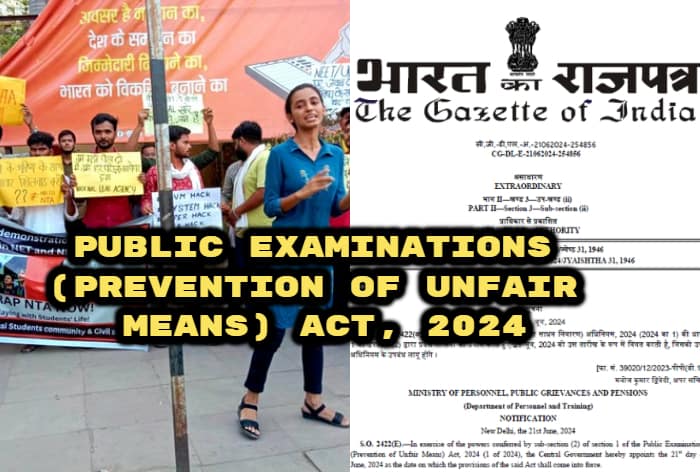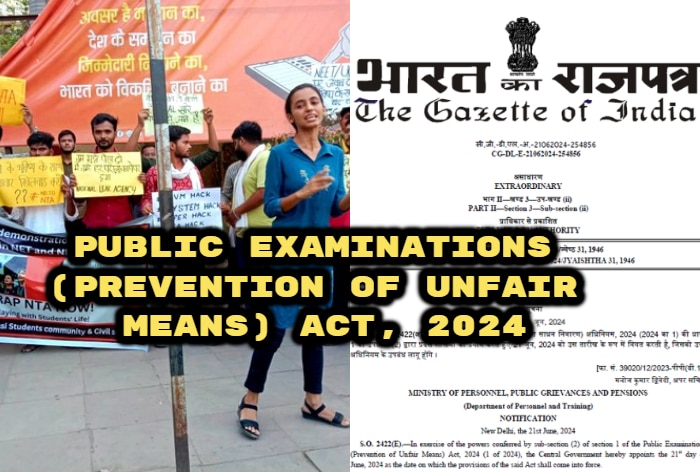The Public Examinations (Prevention of Unfair Means) Act, 2024, Bill was passed by the two Houses of Parliament in the Budget session.

New Delhi: Following the UGC NET, NEET UG, UP Police Recruitment exam, and UPPSC RO, ARO paper leaks, the Public Examinations (Prevention of Unfair Means) Act, 2024, which aims to prevent cheating in public examinations and common entrance tests nationwide, came into effect on Friday. A gazette notification issued by the Ministry of Personnel, Public Grievances and Pensions said, “In exercise of the powers conferred by sub-section (2) of section 1 of the Public Examinations (Prevention of Unfair Means) Act, 2024 (1 of 2024), the central government hereby appoints the 21st day of June 2024, as the date on which the provisions of the said Act shall come into force.”
The Bill, passed by both Houses of Parliament during the Budget session that concluded on February 10, aims to prevent the use of “unfair means” in public examinations and to enhance “transparency, fairness, and credibility”. On February 13, President Droupadi Murmu gave her nod to the Public Examinations (Prevention of Unfair Means), Bill, 2024, which aims to check cheating in government recruitment exams. The notification of the Act comes just a day after Union Education Minister Dharmendra Pradhan was asked when the legislation would be implemented. The minister had said the law ministry was framing the rules.
The Public Examinations (Prevention of Unfair Means) Act, 2024 – the anti-paper leak law for examinations for central recruitment and entrance into central educational institutions, came into effect on Friday.
A gazette notification issued by the Ministry of Personnel, Public… pic.twitter.com/TMJhsDtcJ5
— ANI (@ANI) June 21, 2024
Public Examinations (Prevention of Unfair Means) Act, 2024: Provisions for a minimum of three to five years of imprisonment to curb cheating
The public examinations in the Act refer to examinations conducted by authorities notified by the central government. These include the Union Public Service Commission, Staff Selection Commission, Railway Recruitment Board, National Testing Agency, Institute of Banking Personnel Selection, and Departments of the central government and their attached offices for recruitment. The Act also prohibits disclosing exam-related confidential information before time, and unauthorised people from entering exam centres to create disruptions. The offences will be punishable with imprisonment between three and five years, and a fine up to Rs 10 lakh. All offences under the Bill will be cognisable, non-bailable, and non-compoundable. It has provisions for a minimum of three to five years of imprisonment to curb cheating and those involved in organised crimes of cheating will face five to 10 years of imprisonment and a minimum fine of Rs 1 crore.
Before this legislation, there was no specific substantive law to deal with unfair means adopted or offences committed by various entities involved in the conduct of public examinations by the central government and its agencies. The bill covers recruitment examinations conducted by the Union Public Service Commission (UPSC), the Staff Selection Commission (SSC), Railway Recruitment Boards (RRBs), Institute of Banking Personnel Selection (IBPS), NEET and JEE, and the National Testing Agency (NTA) among others.
Paper leaks have a profoundly negative impact on the candidates, undermining the integrity of the examination system and demoralizing those who prepare diligently.

